THE DEFINITIVE GUIDE FOR THE TREATMENT OF HYPERTHYROIDISM
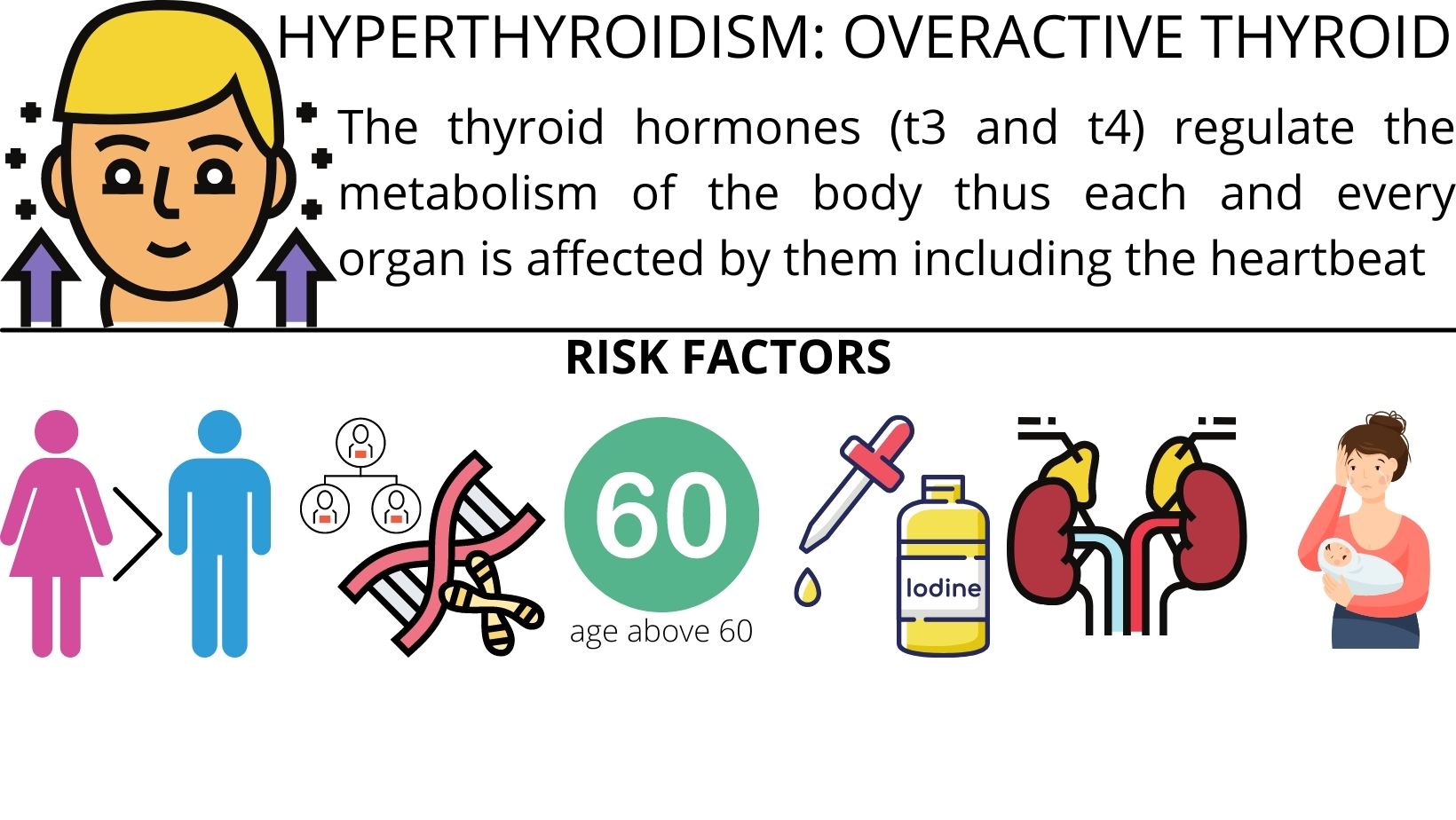 WHAT IS HYPERTHYROIDISM?
WHAT IS HYPERTHYROIDISM?
The thyroid gland is a butterfly-shaped, small-sized gland situated on the front side of the neck. The thyroid gland produces thyroxine hormones T3 & T4 which regulate the metabolism of the body. Hyperthyroidism is a condition in which the thyroid is overactive and there is excessive production of thyroid hormones (T3 & T4) by the thyroid gland. Since the thyroid hormones regulate the metabolism of the body thus each and every organ is affected by it including the heartbeat as well.
WHAT ARE THE RISK FACTORS FOR HYPERTHYROIDISM?
Risk factors of hyperthyroidism include:
- SEX: female sex is more prone to develop hyperthyroidism than the male sex
- AGE: if you are above 60 then chances are more
- FAMILY HISTORY: hyperthyroidism or any other auto-immune disorder would increase the chances of developing hyperthyroidism.
- EXCESS IODINE: eating more iodine in diet or medicines containing iodine would also cause more thyroid hormone production.
- CERTAIN DISEASES: like type 1 diabetes, pernicious anemia, and adrenal insufficiency.
- POST PREGNANCY: there are chances that you might develop hyperthyroidism.
WHAT ARE THE COMPLICATIONS OF HYPERTHYROIDISM?
Hyperthyroidism can cause many complications :
- Atrial Fibrillation: is a condition in which heart rate is rapid and rhythm is also disturbed. This is the most common complication of hyperthyroidism. This increases the risk of stroke and heart failure.
- Osteoporosis: hyperthyroidism if left untreated then interfere with calcium deposition in the bone making them weak and brittle.
- Graves ophthalmopathy: is an autoimmune disorder in which antibodies are produced by the immune system to produce more thyroid hormones. This includes problems related to the eyes- poor vision, bulging of eyes, redness, swelling, and sensitivity to light. This may affect skin also causing redness and swelling.
- Thyrotoxic crisis: may also occur when there is a sudden increase in hormones causing sudden intensified symptoms.
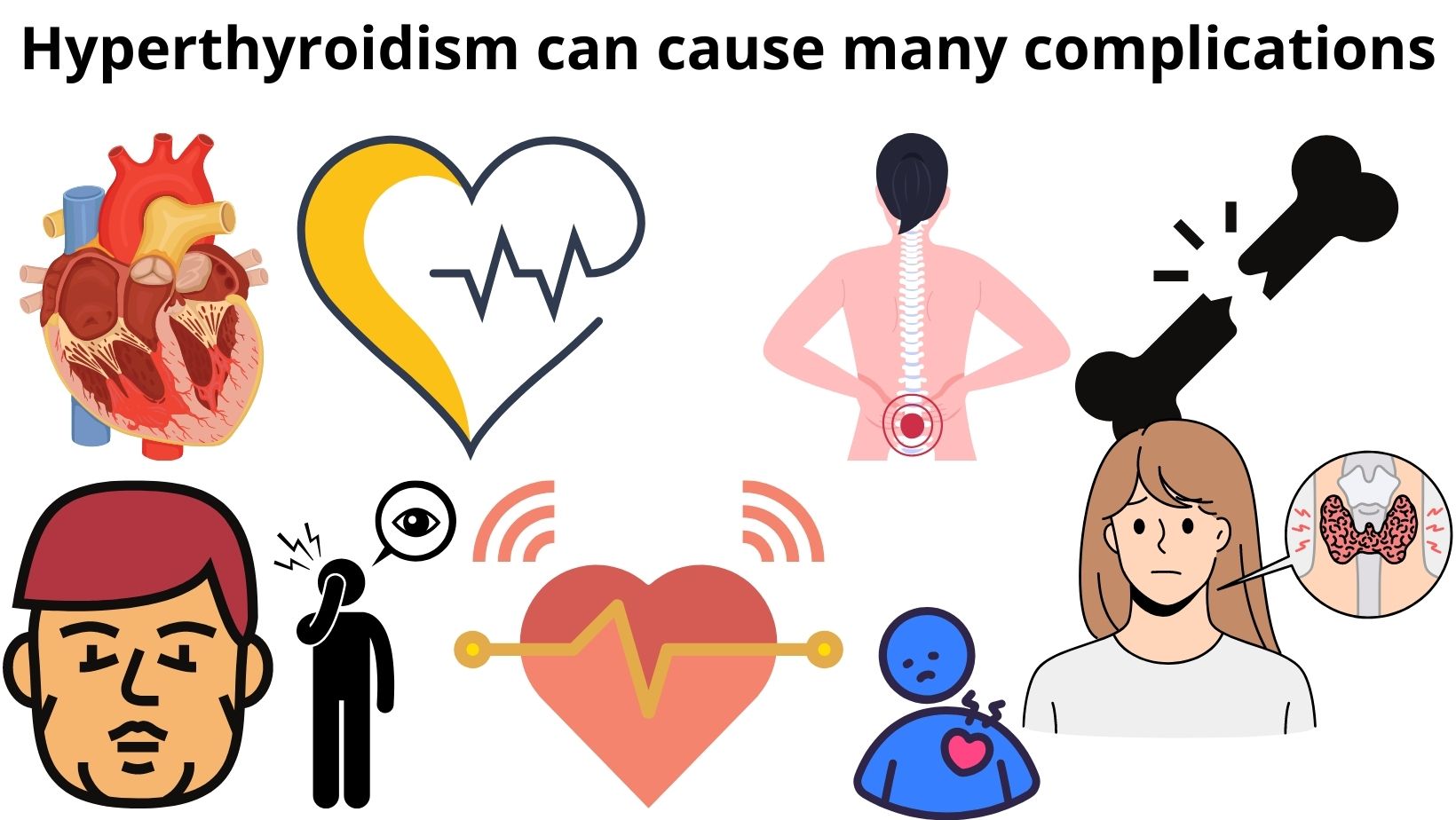 WHAT ARE THE SYMPTOMS OF HYPERTHYROIDISM?
WHAT ARE THE SYMPTOMS OF HYPERTHYROIDISM?
The signs and symptoms of hyperthyroidism are:-
- Unexplained weight loss
- Increased appetite and weakness
- Irregular and rapid heartbeat with palpitations
- Nervousness, anxiety, and restlessness
- Itching and hair loss, hair becomes thin and brittle
- Difficulty sleeping and dizziness
- Nausea and vomiting
- Breast development in men
- Loss of consciousness
- Inability to concentrate
- Shortness of breath
- Sweating
- Irregular menses
- Increased bowel movements
- Graves ophthalmopathy causing bulging of eyes and vision problems
- Unhealthy skin
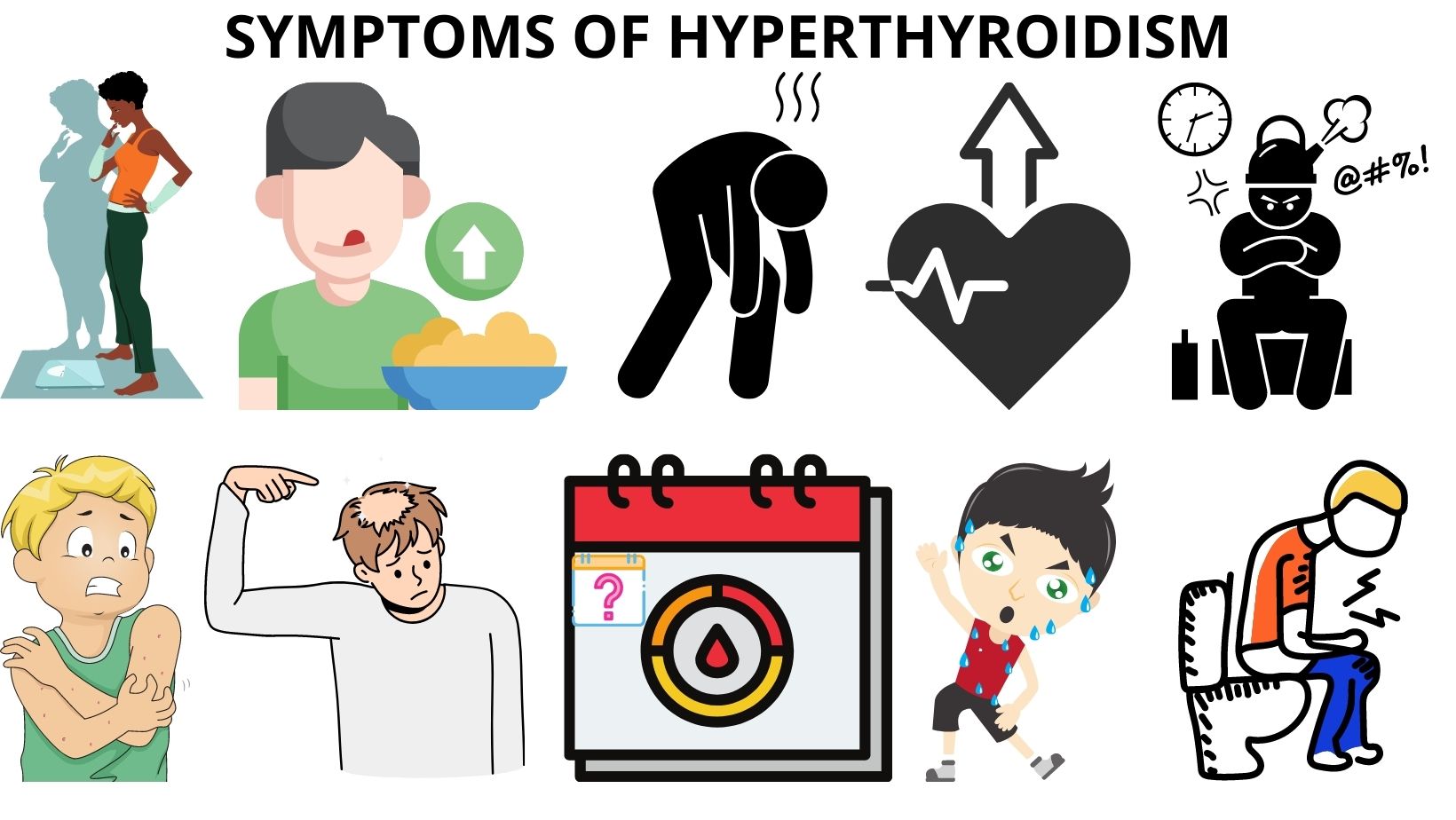 WHAT ARE THE CAUSES OF HYPERTHYROIDISM?
WHAT ARE THE CAUSES OF HYPERTHYROIDISM?
A variety of conditions can cause hyperthyroidism:
- Graves disease is the most common cause of hyperthyroidism. It is an autoimmune disorder in which antibodies are formed by the immune system to produce more thyroid hormones thus thyroid becomes overactive.
- Overactive thyroid nodules are non-cancerous lumps in the thyroid which produce more thyroid hormones.
- Inflammation of the thyroid: would also produce more thyroid hormones.
- Consumption: if consumption of iodine is more then also thyroid gland would be overactive.
- Post-pregnancy: also thyroid may become overactive.
- Too many medicines: for hypothyroidism.
HOW TO GET THE DIAGNOSIS OF HYPERTHYROIDISM?
To diagnose hyperthyroidism following things can be done:
- Symptoms: Typical symptoms of hyperthyroidism would help in diagnosing it
- Examination of the thyroid gland: thyroid gland is enlarged in hyperthyroidism thus would be palpable on examination.
- Blood test: levels of TSH, T3, and T4 in blood.
- Radioiodine uptake test: the more the thyroid gland picks up the radioiodine the more active it is.
- Thyroid scan after injecting a radioactive isotope
- Thyroid ultrasound: would help in detecting thyroid nodules
WHAT ARE THE TREATMENT OPTIONS AVAILABLE FOR HYPERTHYROIDISM?
Conventional treatments for hyperthyroidism include radioactive iodine, anti-thyroid medications, beta-blockers, surgery(thyroidectomy) but these treatments are not permanent and safe. Thus homeopathic treatment is the best treatment for hyperthyroidism.
HOW TO DO THE MANAGEMENT OF HYPERTHYROIDISM?
Management of hyperthyroidism include:
- Advice on regular exercise should be given to the patient to help the patient improve generally.
- A healthy diet would help in maintaining weight and metabolism
- Meditation and relaxation techniques would help release stress and would maintain mental well being
- Smoking: should be discontinued
- Maintain hygiene of eyes and keep them lubricated.
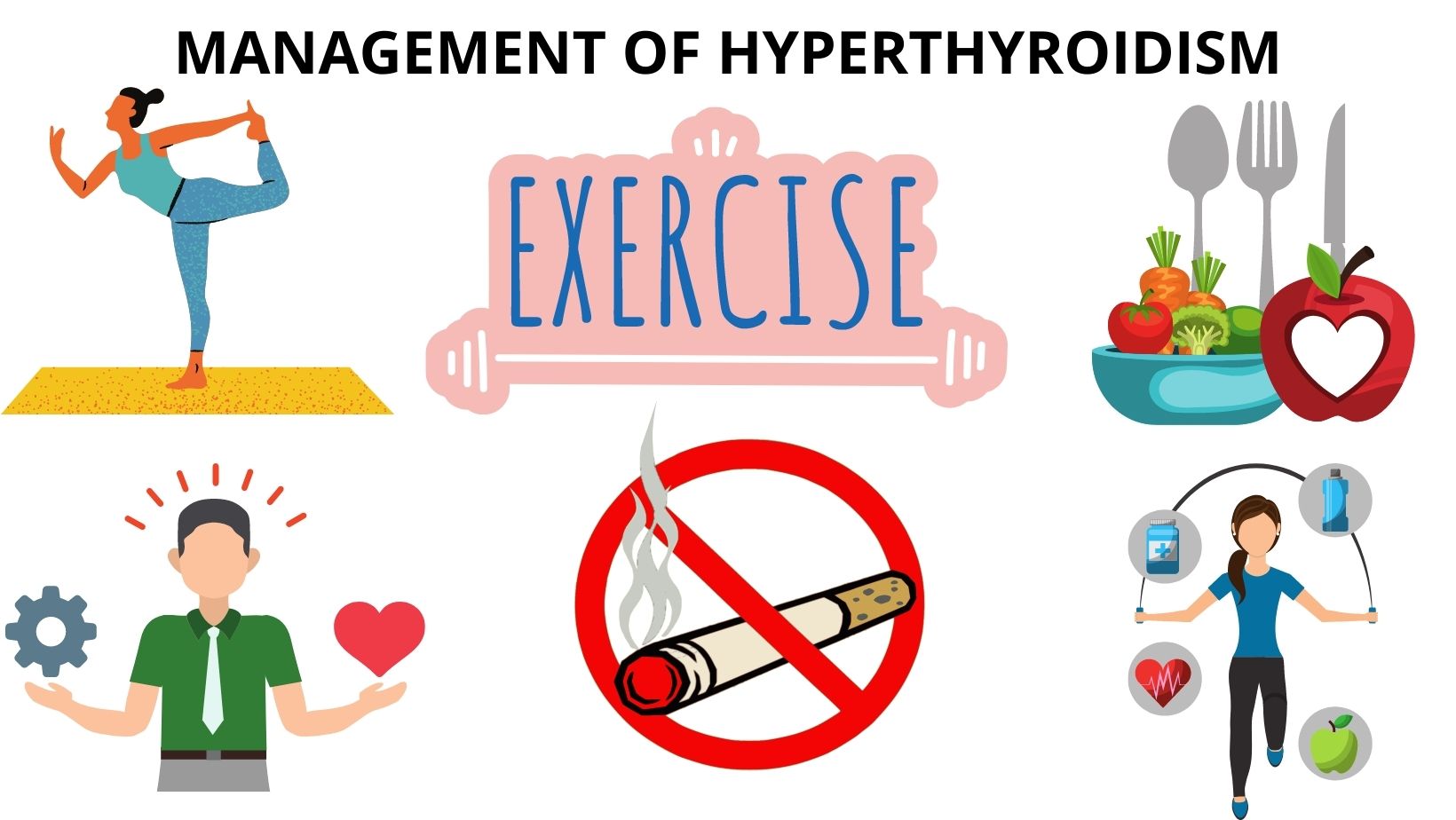 HOMEOPATHIC MANAGEMENT OF HYPERTHYROIDISM?
HOMEOPATHIC MANAGEMENT OF HYPERTHYROIDISM?
There are medicines like natrum mur, sepia, calcarea carb, kali carb, thyroidinum, completely without recurrence. But medicine depends on the presentation of the case and should never be taken without consulting a registered homeopath. Homeopathy has the permanent Cure for Hyperthyroidism.
DO’s AND DON’Ts
Do’s
- Avoid food items high in iodine.
- Do regular physical exercise.
- Eat a healthy diet.
- Take plenty of water.
- Do meditation
Don’ts
- Don’t ignore the condition
- Don’t smoke.
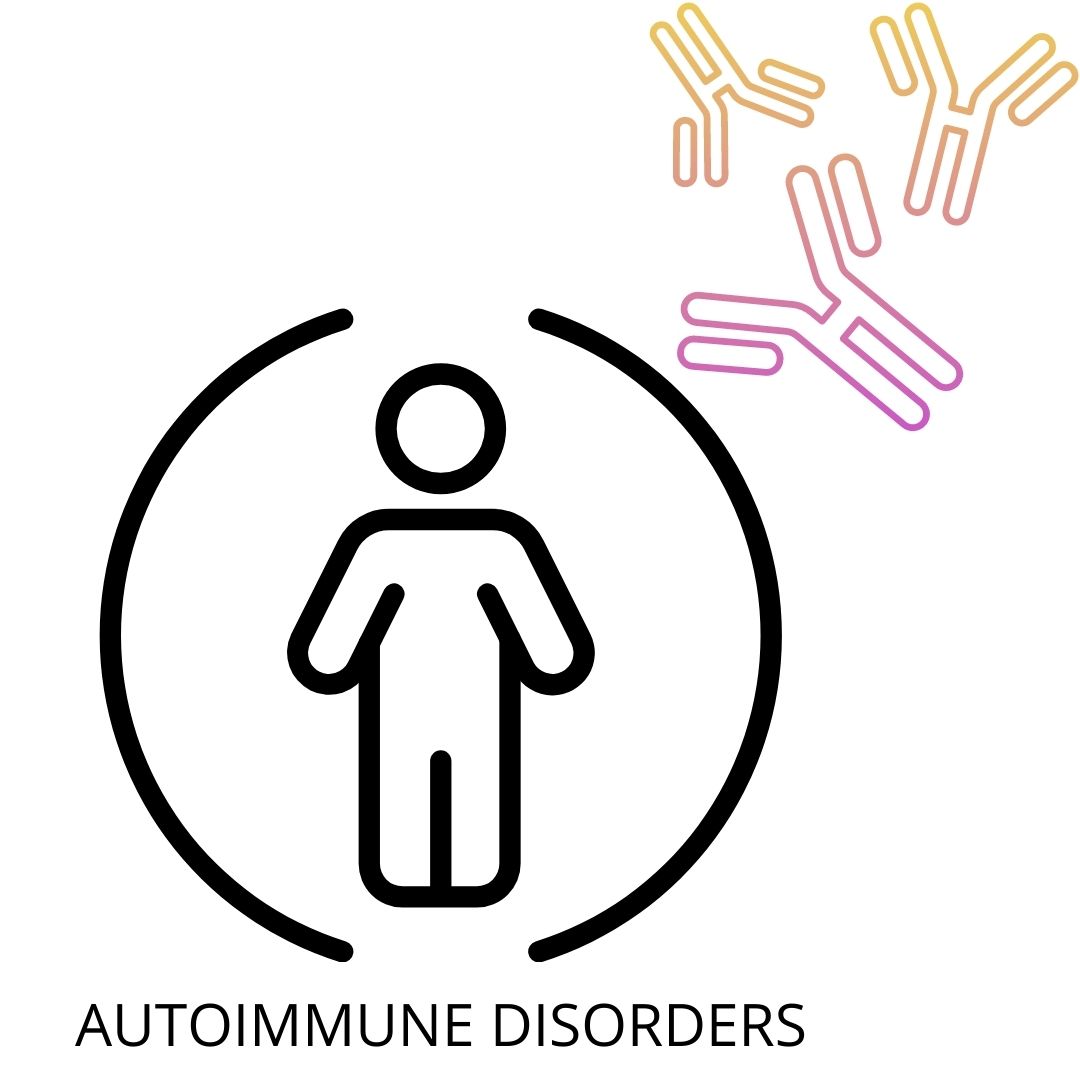
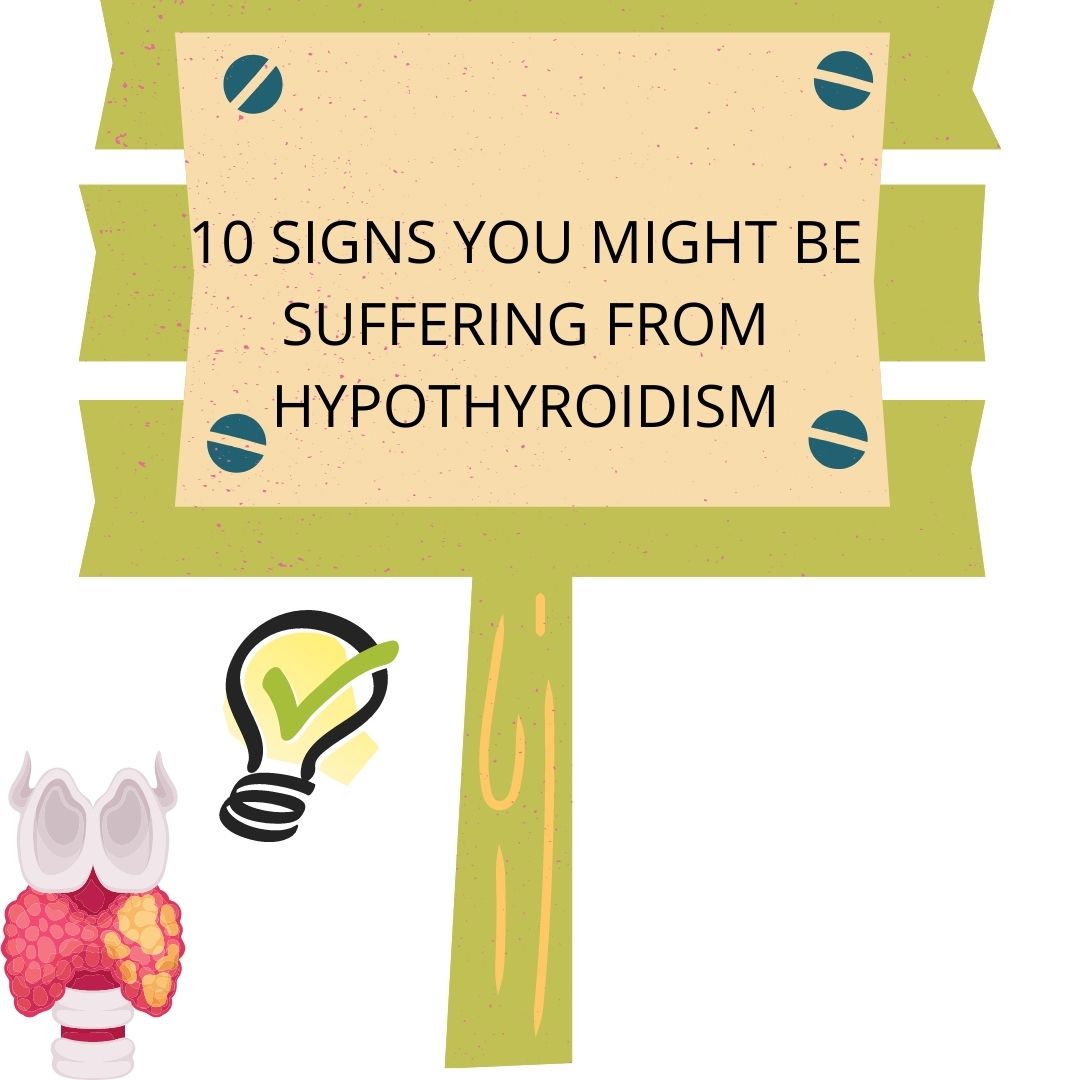
Comments
We have received your comment , Thank You !